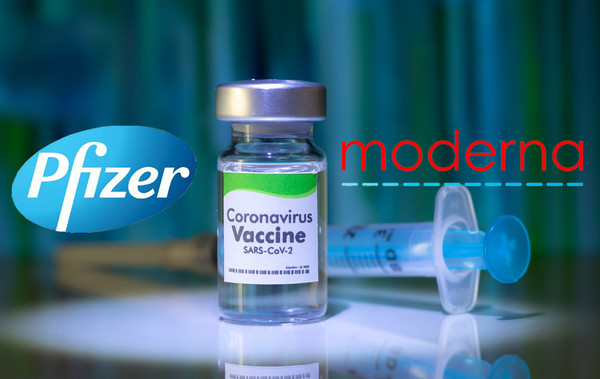People who showed allergic reactions, including anaphylaxis to the first dose of mRNA Covid-19 vaccines by Pfizer or Moderna, can tolerate the second dose, a study said.
U.S. researchers released the study results, titled, “Safety Evaluation of the Second Dose of Messenger RNA COVID-19 Vaccines in Patients With Immediate Reactions to the First Dose,” in the JAMA Internal Medicine on Monday.
According to the research team, allergic reactions after mRNA Covid-19 vaccines occurred in 2 percent of the vaccinated, with anaphylaxis appearing in up to 2.5 per 10,000 people.
However, there was uncertainty about whether those who had adverse reactions in the first dose of mRNA vaccine had to get the second dose, the research team said.
The study aimed to examine the safety of the second dose of Pfizer or Moderna vaccine in people with a history of immediate and potential allergic reactions to the first dose.

The study was conducted from Jan. 1 to March 31 on patients with an immediate allergic reaction to the Pfizer or Moderna vaccine at Massachusetts General Hospital (Boston), Brigham and Women’s Hospital (Boston, Massachusetts), Vanderbilt University Medical Center (Nashville, Tennessee), Yale School of Medicine (New Haven, Connecticut), and University of Texas Southwestern Medical Center (Dallas).
An immediate allergic reaction was defined as symptom onset within four hours of the first dose, at least one allergic symptom, and referral for an allergy/immunology consultation with in-clinic or telehealth assessment.
The researchers scored anaphylaxis using the Brighton and the National Institute of Allergy and Infectious Diseases/Food Allergy and Anaphylaxis Network criteria.
Confirmed anaphylaxis had to meet at least one of the two criteria.
The primary outcome was either no immediate symptoms after the second dose or symptoms that were mild, self-limited, or resolved with antihistamines alone.
Among 189 patients in the study, 130 (69 percent) received the Moderna vaccine, and 59 (31 percent), the Pfizer vaccine, for the first dose.
The most frequently reported first-dose reactions were flushing or erythema (53 patients), dizziness or lightheadedness (49), tingling (46), throat tightness (41), hives (39), and wheezing or shortness of breath (39). Thirty-two (17 percent) met the anaphylaxis criteria.
Out of 189 patients, 159 (84 percent) got the second jab, and 47 (30 percent) received antihistamine premedication before the second dose.
The results showed that all 159 patients, including 19 with first-dose anaphylaxis, tolerated the second dose.
Thirty-two (20 percent) reported immediate and potentially allergic symptoms associated with the second dose, but those were mild, self-limited, or resolved with antihistamines alone.
“This multisite U.S. study supports the safety of Pfizer-BioNTech or Moderna vaccine second dose administration in patients who report immediate and potential allergic reactions after the first dose,” the research team said. “Although mild symptoms were reported in 20 percent of patients with second dose administration, all patients who received a second dose safely completed their vaccination series and could use mRNA COVID-19 vaccines in the future when indicated.”
The researchers noted that the second dose tolerance, following reactions to the first dose, indicates that either most initial reactions are “not all truly allergic reactions” or supports an allergic but non-immunoglobulin E-mediated mechanism in which symptoms can be reduced with premedication.
With the Janssen vaccine obtaining emergency use approval, the U.S. Centers for Disease Control and Prevention recommended that those with allergic reactions to the first dose of the Pfizer vaccine could get a single Janssen shot, the research team said.
However, the latest study showed that most patients with immediate and potential allergic reactions to mRNA COVID-19 vaccines tolerate a second dose and that they do not have to consider unstudied alternative mixed vaccination, it said.

